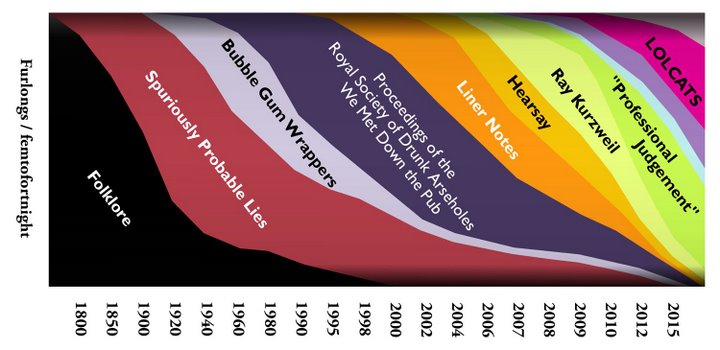Steven Woloshin et al., "Press Releases by Academic Medical Centers: Not So Academic?", Annals of Internal Medicine, 150(9): 613-618:
Background: The news media are often criticized for exaggerated coverage of weak science. Press releases, a source of information for many journalists, might be a source of those exaggerations.
Conclusion: Press releases from academic medical centers often promote research that has uncertain relevance to human health and do not provide key facts or acknowledge important limitations.
There's no indication that any of the 200 press releases in their sample was as bad as the infamous "Nobler Instincts Take Time" document from USC that set off a flurry of headlines like "Twitter makes users immoral, research claims". (For details, see "Debasing the coinage of rational inquiry: a case study", 4/22/2009.) And even further out on the long tail of hooey are the virtuoso flacks who create scientific-seeming news out of little or no research at all.
But Woloshin et al. do conclude that investigators should "review releases before dissemination, taking care to temper their tone (particularly their own quotes, which we often found overly enthusiastic)". This is certainly good advice, though it's not much more likely to be followed than any other good advice that runs counter to its recipients' interests.
Read the rest of this entry »


